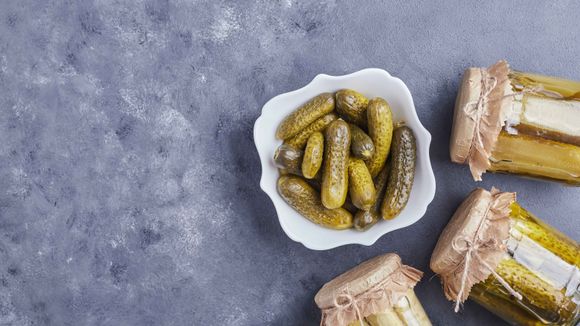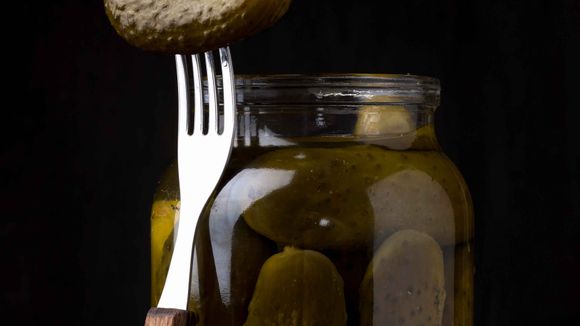What is the effectiveness of pickle juice in heartburn
Heartburn is a symptom of acid reflux and gastroesophageal reflux disease (abbreviated GERD). [ref. 1] These are conditions in which stomach acid is regurgitated (returned) from the stomach into the esophagus, in the opposite way it should move through the digestive system.
In fact, this problem can be exacerbated by a number of factors, such as different types of stress on the body, spicy or acidic foods or overeating, obesity, taking certain medications, and others.
Heartburn is something that everyone can face and it is not pleasant at all. These are burning sensations, sometimes throbbing pain or discomfort in the chest just behind the sternum. They often get worse after eating or drinking, as well as when lying on your back or abdomen.
The effectiveness of drinking pickle juice to relieve the symptoms of heartburn is rather subjective. Some people find it helpful, others don't. No scientific study supports the use of pickle juice as a means of treating heartburn.
Probably people trust this juice because of the content of Lactobacillus in high quantities. This is the same healthy probiotic bacterium found in the microbiome of the intestine, on the crusts of cucumbers and in yogurt. [ref. 2]
Most finished products with pickles commercially are pasteurized. This means they have undergone a heat process to kill any potentially harmful bacteria before being packaged for sale. Unfortunately, good bacteria also perish during this process, which completely reduces the usefulness of industrial pickles.
Effective home remedies for heartburn

The use of pickle juice to relieve the symptoms of heartburn seems subjective, with no real evidence at the moment. We offer to your attention some more reliable means of acid relief, which have been properly studied and documented by medical professionals: [ref. 3]
- Taking antacid drugs (without a prescription)
- Taking other medicines that may be prescribed by a doctor
- Avoiding bedtime too soon after meals (interval of 2-3 hours)
- Smaller portions of food to prevent overeating and digestion load
- Dietary changes to limit the consumption of carbonated drinks and sour foods such as tomatoes, citrus and vinegar









